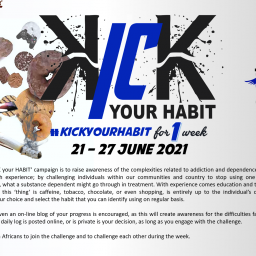The banning of alcohol sales in South Africa for the second time, as a means to curb the spread of the Coronavirus, has again highlighted the dangers of alcoholism.
Alcoholism is a chronic disease characterised by uncontrolled drinking and a preoccupation with alcohol. Alcoholics are not able to control their drinking due to both a physical and emotional dependence on alcohol.
According to Karen Griessel, a social worker at SANCA Wedge Gardens, alcohol is a depressant that slows down the messages travelling between the brain and body.
“Drinking more than two standard drinks a day can affect your health over a lifetime, and can lead to addiction. Alcohol dependency is linked to depression and anxiety,” says Griessel.
“Alcohol dependency, also known as alcohol use disorder, is a medical disease characterised by an impaired ability to stop or control alcohol use despite social, occupational or health consequences,” she adds.
Another form of alcoholism is binge drinking. This is when a person doesn’t drink alcohol daily, but when they do drink, they are unable to stop.
Alcohol affects everyone differently.
“In severe cases, withdrawal symptoms start four to 12 hours after the last drink. Symptoms range from sweating, tremors and nausea, to anxiety, irritability, fits, delusions and headaches, to name a few,” says Griessel.
“Some long-term effects of alcohol abuse on one’s health include high blood pressure, heart-related disease, liver disease, permanent damage to the brain, malnutrition, ulcers, gastritis, cancer, alcohol poisoning, diabetes and mental health problems,” she adds.
For more information about SANCA Wedge Gardens, visit www.wedgegardens.co.za.
















